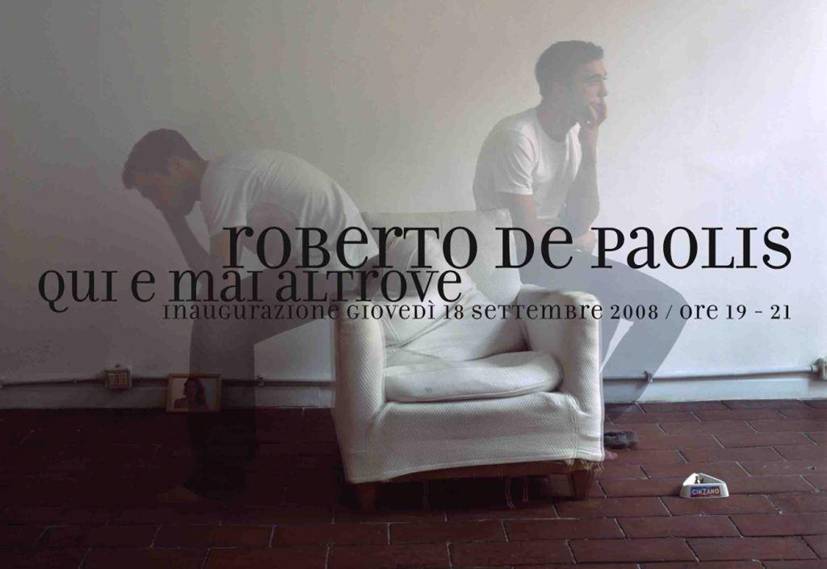
Oredaria arti Contemporanee Via reggio emilia 22-24 00198 Rome Italie
Exhibition until 22 November 2008.
The catalogue interview with the artist is by Walter Guadagnini.
When I say “Here and not elsewhere” (Qui e mai altrove) I am alluding to a period of solitude and a self-enforced standstill, a sort of ‘space’ where it is possibile to come to grips with oneself, and constantly explore the many facets of ones identity….
Roberto De Paolis
Roberto De Paolis (born in Rome, 1980) presents an entirely new series of photographs in this one-man exhibition opening on the 18th September at the Oredaria Gallery.
We notice the impact cinematographic photography has on his visual imagery in the way he uses muted lighting that tends to mitigate the chromatic contrast of the environments, softening the forms and shading the contours.
The concept at the basis of these pictures is essentially architectural, with the perspective playing an important part in the highlighting of the subjects. Women are seen reflecting, listening, looking searchingly or dreaming, whilst men whisper, meditate, contemplate or reminisce. The faces are melancholy, the figures draped in solitude and the disorientated expressions are always looking away thus avoiding any possibility of our getting involved.
The technique of double exposure used by Roberto De Paolis produces superimposed images giving a sort of a double dimension to the subjects. Here visions are created and not views, stimulating us to reflect on the theme of ‘the double’, of shadow-like situations, or the search for an identity that’s difficult to pinpoint.
Prints on plexiglass versus lightboxes, big installations versus tiny formats - De Paolis’ dichotomous view is represented also in the diversity of the environments designed like film sets. We see doors left half-open, flung away picture frames, lop-sided, non-matching floors, time-worn couches and beds, dim lampshades, chairs, shadows etc. - everyday scenes, mainly domestic ones, that have the power of taking us back in time.
A suspended calm conceals a whole world, the world of our soul and the soul that is expressed by De Paolis’ subjects. An identity seems to have vanished into the past, and will probably be anonymous in the future, it can only be discovered in a precise moment: ‘here’ in this space, and ‘not elsewhere’.
Angel Moya Garcia

